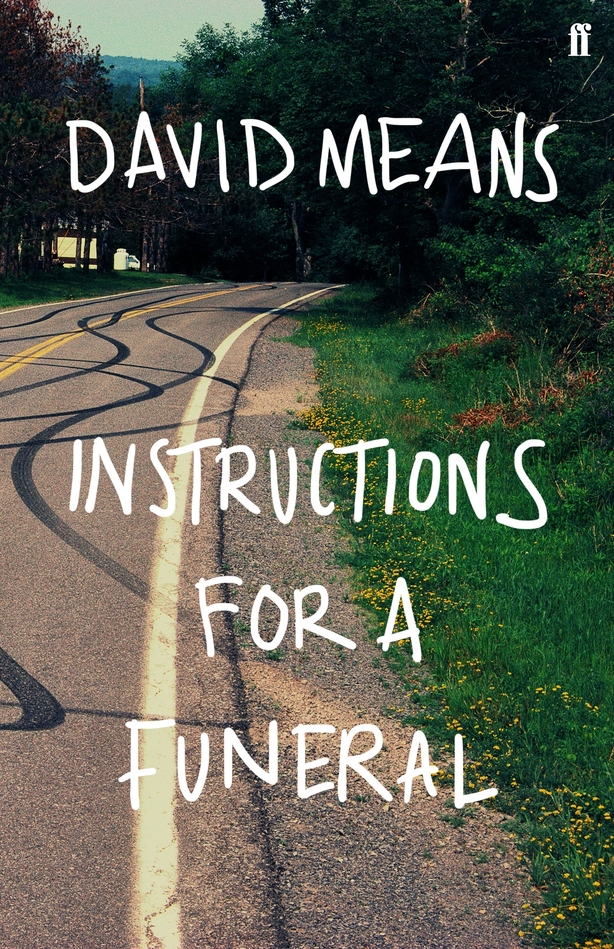David Means' novel Hystopia was shortlisted for the Man Booker prize and his new collection of spare, ruminative stories are utterly authentic in their depiction of the sometimes desperate lives of his characters.
Means has that curiously familiar ability to appear to be diving in almost at a slight angle, as though he were wielding a cleaver to cut a cross-section to the chase. Accordingly, there is little preamble to Fistfight, Sacramento, August 1950, an absorbing tale of class difference resolved in a ridiculous fistfight between two young students. Its essence or kernel is winkled out and analysed in mature recollection by one of the opponents, named Bergaro. The latter found a wife when she came to his aid after the fight and it is he who narrates the story, reflecting on that pivotal encounter.
Fistfight, Sacramento, August 1950 is the second in the 14-story collection. The first one, Confessions, which runs to a mere four pages, is markedly different in tone. It is told in the first person, and Means likes to experiment with narrative standpoints and ways of seeing, how things are refracted through experience.
In Confessions, a short story writer - Means himself? - tries to describe what he has been doing through 30 years of authorship. He wangles into the story the flinty relationship with his father and particularly his hope for a revelation of some meaningful kind from him as he lay dying. There is an air of Samuel Beckett about the long train of thought, winding sinuously through the grimly resonant narrative.
In The Butler’s Lament, a former tool-and-die worker who got fired unfairly is now in a psychiatric hospital imagining that he is a butler, sometimes to Lord Leitrim, sometimes to Lord Byron. There is an Irish connection as the patient's mother came from Carrick-on-Shannon. The Leitrim county town also features briefly in The Mighty Shannon, which concerns a married pair who have affairs, one trumping the other, spitefully almost, in infidelity. Ultimately, the couple, who are realistic enough people, decide to let bygones be bygones after some marriage counseling. They resume their relationship with a certain cheery, or should that be grim inevitability.
The title story, Instructions for a Funeral, tells of two friends who fall out over a business deal which had been sealed with a handshake to avoid the cold formality of the legal contract. The relationship has soured to such a degree that low-life types have become part of the equation.

Moreover, the possibility of a killing hovers over the strange narrative, which is exactly what it says on the tin - instructions for a funeral (ceremony) by the narrator who believes that he may be dead by the time these notes are read. The instructions are devised for optimum rancour and a measure of bitter contempt intended for at least two of the mourners who are expected to come to the obsequies.
Farewell My Brother is a skillfully-layered story of a doomed brother with a sense of William Faulkner's baton of narrative viewpoint being passed around. Unbeknownst to their supervisor, five men brood over a clandestine cigarette break at a rehab facility. It is just a few days until Christmas, and the Hudson River, on whose bank they stand, is freezing over. That river, and New York state through which it flows is the backdrop for a number of the stories in the 189-page collection. The action drifts westwards to the port city of Duluth, Minnesota for another and Means vividly conjures up the atmosphere of maritime places.
However, it is the Hudson which the author - who teaches in Vassar College in upstate New York - appears to know best. He has an elemental familiarity with the river, he knows the look and feel of its leafy banks and hinterlands. He has an ear and an eye too for the passing trains, which shuffle commuters back and forth to desk jobs in Manhattan.
That clamorous, many-peopled island seems like a foreign country in these superbly-wrought tales which generally stay well clear of the city that never sleeps.







